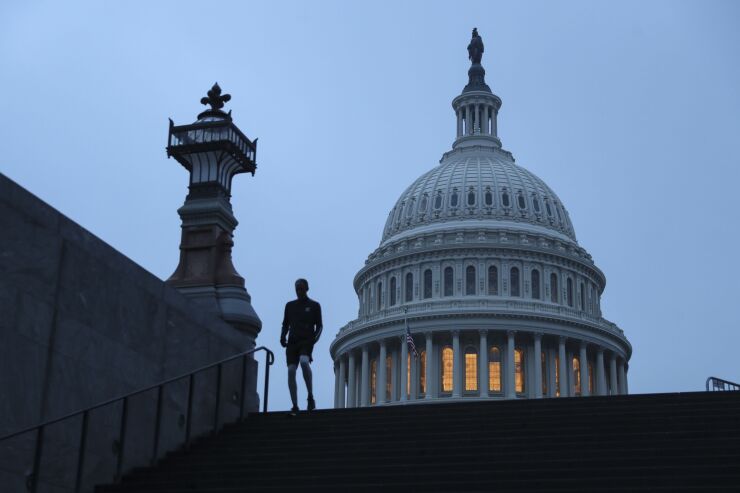Lawmakers introduce bill to expand Affordable Housing Tax Credit

Members of the Senate and House introduced bipartisan legislation to expand the Affordable Housing Tax Credit.
The Affordable Housing Credit Improvement Act, introduced Friday, would increase housing credit allocations by restoring the 12.5% cap increase that expired in 2021 and further increase resources by 50% to help meet the growing need for affordable housing.
The bill would also enable states to maximize affordable housing production and preservation by lowering the threshold of Private Activity Bond financing — from 50 to 25% — required to trigger the maximum amount of 4% housing credits available to individual properties.
The bill would also enable the housing credit to better serve hard-to-reach communities including rural, Native American, high-poverty and high-cost communities, along with extremely low-income and formerly homeless tenants. It would make the housing credit more effective at preserving existing affordable housing by simplifying and aligning rules.

Oliver Contreras/Bloomberg
The bill would also streamline and simplify program rules to align the housing credit with other affordable housing programs and remove administrative inefficiencies. The bill would also codify protections for veterans and victims of domestic and dating violence by formally adopting IRS guidance and protections under the Violence Against Women Act within the Tax Code.
The bill garnered bipartisan support and was introduced Friday in the Senate by Sen. Maria Cantwell, D-Washinton, Todd Young, R-Indiana, Ron Wyden, D-Oregon and Marsha Blackburn R-Tennessee; and in the House by Rep. Darin LaHood, R-Illinois, Suzan DelBene, D-Washington, Brad Wenstrup, R-Ohio, Don Beyer, D-Virginia, Claudia Tenney, R-New York, and Jimmy Panetta, D-California.
The AHCIA of 2023 builds on prior versions of the AHCIA that have earned wide bipartisan support since first introduced in 2016. Several pieces of the legislation have already been enacted, including a provision that would make the housing credit more compatible with energy and solar tax credits in 2022, a minimum 4% housing credit rate in 2020, and a temporary 12.5% housing credit allocation increase and a flexibility known as income averaging in 2018.
However, the temporary 12.5% housing credit allocation increase enacted in 2018 expired at the end of 2021, so there is currently a cut to this affordable housing tool. The proposal under the bill to lower the Private Activity Bond financing threshold — a requirement that approximately half of housing credit developments need to meet in order to access housing credits — would also allow more resources for producing affordable housing. The legislation would also provide states with additional flexibilities, streamline program rules, and make the housing credit more efficient in hard-to-reach rural and Native American communities.
Advocates are hoping the bill will be passed in Congress this year.
“Since the Affordable Housing Credit Improvement Act was first introduced in 2016, the affordable housing crisis has only worsened, and the need to take action on affordable housing is urgent,” said Affordable Housing Tax Credit Coalition CEO Emily Cadik in a statement. “This important legislation will finance nearly two million homes nationwide at a time when rents are skyrocketing, even in many places once considered affordable. We applaud the leadership of the AHCIA’s bipartisan co-sponsors and urge Congress to finally enact these bipartisan proposals this year.”


